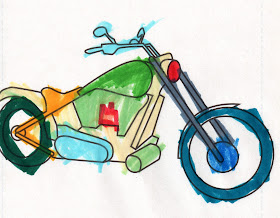Best of the year: fiction
The Thousand Autumns of Jacob DeZoet, David Mitchell, 2010
 I picked up this book because it made a lot of NPR 10-best lists fro 2010. That proved to be a reliable recommendation. I especially appreciated the quality, long-form novel because I started reading it at the beginning of a 27-hour flight to Asia. The story’s setting in turn of the 19th century Nagasaki felt appropriate despite the fact that my destination was Vietnam. Although the plot keeps the reader interested, that setting in Nagasaki and its Dutch trading post is pleasingly unfamiliar. Although I have no way of judging its accuracy, it felt historically plausible and educational. We meet the title character when he is a newly-arriving clerk at the trading post ad follow him as he navigates the machinations of both the half-marooned population of the trading post and the complicated politics of closed, Shogunal Japan. This is a page turner that achieved an all-too-rare feat - making me wish I didn’t have to participate in real life so I could have more time to just read the book.
I picked up this book because it made a lot of NPR 10-best lists fro 2010. That proved to be a reliable recommendation. I especially appreciated the quality, long-form novel because I started reading it at the beginning of a 27-hour flight to Asia. The story’s setting in turn of the 19th century Nagasaki felt appropriate despite the fact that my destination was Vietnam. Although the plot keeps the reader interested, that setting in Nagasaki and its Dutch trading post is pleasingly unfamiliar. Although I have no way of judging its accuracy, it felt historically plausible and educational. We meet the title character when he is a newly-arriving clerk at the trading post ad follow him as he navigates the machinations of both the half-marooned population of the trading post and the complicated politics of closed, Shogunal Japan. This is a page turner that achieved an all-too-rare feat - making me wish I didn’t have to participate in real life so I could have more time to just read the book.Best of the year: non-fiction
The New York Regional Mormon Singles Halloween Dance, Elna Baker, 2009
 I heard Elna Baker on an incredible live episode of the incredible Marc Maron podcast. That appearance came a few years after this book was published, but it made me very curious to read it. In this memoir - yes, it's a memoir with that crazy long title - Baker details her life as a Mormon in New York City. Baker is a standup comedienne, and the book is funny, but that's not what made it so gripping for me. Baker details her struggles and questions with her Mormon faith in the midst of her lively social life in New York City. Mormonism as much as any other faith enforces social norms of behavior that are understood to manifest in a long line of "no's". No drinking, no drugs, no sex. Baker shares incredibly frankly her hopes and fears in relation to remaining committed to her church while being pulled toward life outside of it. The real action comes (not really spoiling here) when she meets an atheist whom she really, really likes. Her family members definitely play their roles in her narrative a la David Sedaris; she lives with her older, more beautiful sister in New York. Her parents sound like generous, awesome people. I've been highly recommending this book for its honesty and page-turning narrative.
I heard Elna Baker on an incredible live episode of the incredible Marc Maron podcast. That appearance came a few years after this book was published, but it made me very curious to read it. In this memoir - yes, it's a memoir with that crazy long title - Baker details her life as a Mormon in New York City. Baker is a standup comedienne, and the book is funny, but that's not what made it so gripping for me. Baker details her struggles and questions with her Mormon faith in the midst of her lively social life in New York City. Mormonism as much as any other faith enforces social norms of behavior that are understood to manifest in a long line of "no's". No drinking, no drugs, no sex. Baker shares incredibly frankly her hopes and fears in relation to remaining committed to her church while being pulled toward life outside of it. The real action comes (not really spoiling here) when she meets an atheist whom she really, really likes. Her family members definitely play their roles in her narrative a la David Sedaris; she lives with her older, more beautiful sister in New York. Her parents sound like generous, awesome people. I've been highly recommending this book for its honesty and page-turning narrative.






















